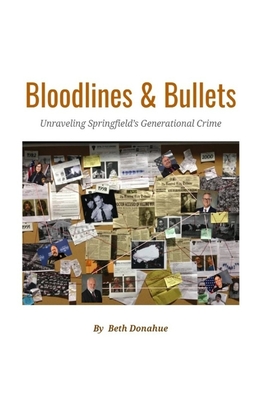In a city of just over 57,000 souls, the toll is almost incomprehensible: 42 lives lost to homicide between January 2021 and July 2025. This isn't a story about a sprawling metropolis; this is Springfield, Ohio. The violence has not been steady; it has been a terrifying crescendo. After recording nine homicides in 2021, eight in 2022, and eleven in 2023, the city saw a horrifying surge. The eight murders in the first six months of 2025 alone eclipsed the entire previous year's total, signaling a community spiraling into an abyss. In Bloodlines & Bullets: Unraveling Springfield's Generational Crime, a groundbreaking investigation cuts through the noise of nightly news reports and political finger-pointing. Drawing on a painstaking review of court records, police reports, and confidential internal city data, this book argues that Springfield's wave of violence is not a random anomaly, but the predictable, horrifying outcome of a profound institutional collapse. The findings are explosive. This book uncovers what can only be described as a manufactured reality, revealing a shocking and "irreconcilable discrepancy" between the city's internal homicide records and the official data submitted to the FBI. While the city's own Law Director tracked 28 homicides from 2021-2023, the official report to the federal government claimed only 20. This 40% undercount, the book argues, points to a systemic practice of downgrading or misclassifying murders, deceiving the public and dangerously masking the true scale of the crisis. The investigation also exposes a justice system that inexplicably fails to protect its most vulnerable. From 2022 to 2024, Springfield's Municipal Court dismissed over 80% of all Intimate Partner and Domestic Violence cases brought before it each year. This is not just a statistic; it is a chilling pattern with fatal consequences. In a city that effectively decriminalized domestic violence, an astonishing 60% of all homicide offenders had a documented history of it, their violence tragically escalating after the system chose to look away. At the heart of Bloodlines & Bullets is a provocative and meticulously researched thesis that challenges everything we think we know about urban violence. It argues that this crisis goes beyond poverty or policing; it's generational. A stunning kinship-network analysis reveals that in 38% of all homicide cases, the victim or offender was a direct relative-a parent, child, or sibling-of someone involved in a prior h










